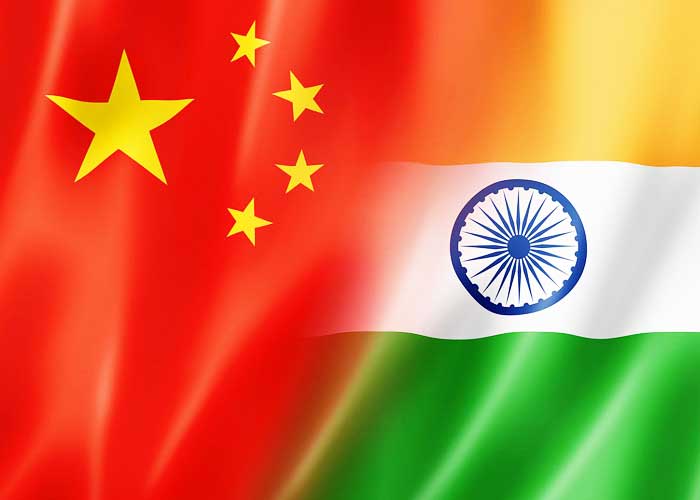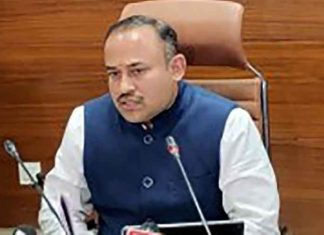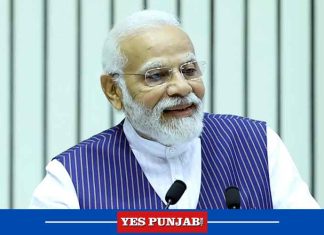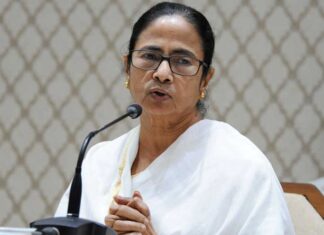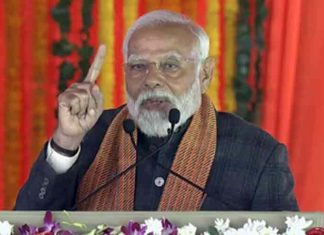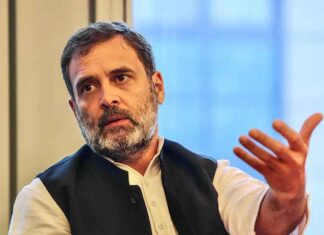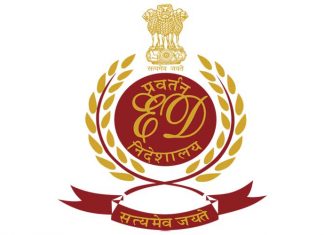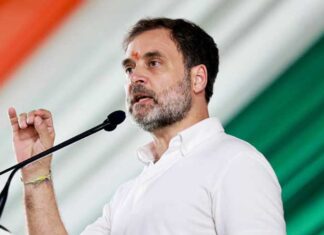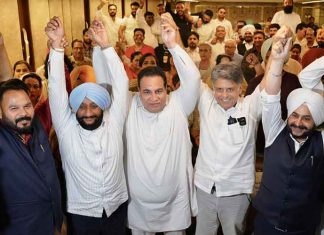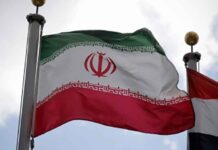New York, Oct 1, 2020-
When India is a victim of China’s bullying behaviour and is facing substantial security challenges, Washington’s sale of advanced weapons system show its commitment to India’s security, according to a senior US State Department official.
“At a time when India is facing substantial security challenges, the growth in our defence partnership is exceptionally important. This partnership includes defence sales, particularly our offers of advanced US weapon systems as a demonstration of our commitment to Indian security and sovereignty,” the official told reporters on Wednesday.
“We view India as an emerging global power that shares our vision of an Indo-Pacific region that is peaceful, stable and prosperous for all in pursuit of that goal,” the official said.
The evolution of India-US defence partnership supports a peaceful order in the Indo-Pacific region in the context of India suffering from China’s aggressive behaviour, the official said.
“China has engaged in aggressive hostile or bullying behaviour against its neighbours or against its own citizens. Unfortunately, you know, India has also been been been one of the victims of that,” said the official, who spoke on the condition of not being identified.
“We know what a peaceful, open, successful and welcoming order looks like in the Indo-Pacific. And that’s something that we’re trying to advance in a scenario where the United States and India very much share a common objective, and evolution of our defence partnership is supporting and consistent with that,” the official said.
For the US, “the exercise of freedom of navigation of military and defence partnerships and cooperation with other states in the region is designed to reinforce the basic norms of peaceful solution of problems, resolution of disputes and a preservation of rule of law, freedom of navigation,” the official.
The official saw a much deeper defence cooperation between the two countries.
“The US-India defence relationship extends beyond arms transfers. Our partnership also includes our ongoing efforts to on defence industrial cooperation. Through the US-India defence technology and trade initiative, the United States and India work together on co-production and co-development of defence equipment, most recently through a US-Indian senior defence official meeting on September 15,” the official said.
“Interoperability between our military services has reached unprecedented levels as demonstrated by the Tiger Triumph exercise last year, and the Indian Navy’s recent passage exercise with the USS Nimitz Carrier Strike Group in the Indian Ocean,” the official said.
The Tiger Triumph exercise was held last November off the coast of Vishakapatnam with 500 US Marines and 1,200 Indian sailors, air force personnel and soldiers.
In July, Indian Navy ships Rana, Sahyadri, Shivalik and Kamorta participated in naval exercises with the USS Nimitz and the ships in its group in the Indian Ocean.
The official spoke of the cooperation extending beyond the bilateral to the multilateral through the Quad that includes Japan and Australia.
“We welcome additional opportunities for engagement such as having Australia join the Malabar naval exercise,” the official said.
While India, the US and Japan are ready for the Malabar exercise, “we are still discussing whether or not Australia will be able to participate,” the official said.
The annual Malabar naval exercise originally started with India and the US and Japan became a permanent partner in 2015. Australia is interested in joining the exercise but an invitation to from India is pending.
The official said that in the Indo-Pacific region, the US “is building new and stronger bonds with the nations that share our values across the Indo-Pacific region, India, Australia and Japan are the are the main three, that we have.”
Asked if a formal structure was anticipated for the Quad, the official said Washington wanted to strengthen the existing regional set up instead of creating a new one.
The official said, “Our quadrilateral consultations allow us to exchange perspectives on the Indo-Pacific region and discuss how to advance these goals. We also shared goal of strengthening the existing regional architecture, rather than create new regional architecture. We want to grow our engagement with ASEAN and ASEAN centred institutions to preserve that rules-based order.”
The official said that the US welcomes India into the United Nations Security as an elected member next year. (Agency)

Click here to Like us on Facebook



